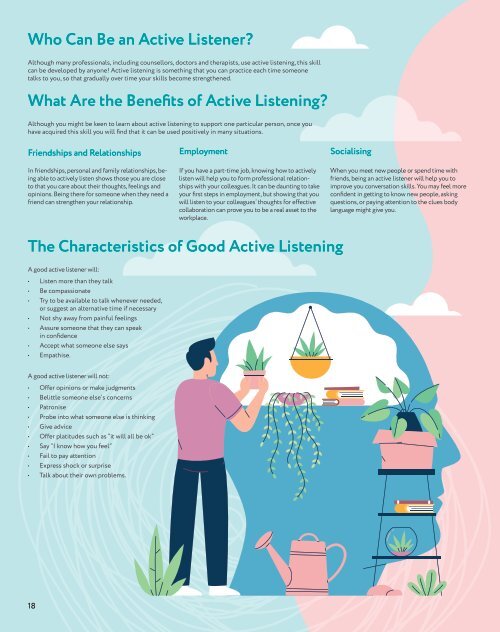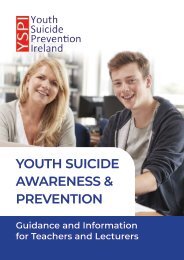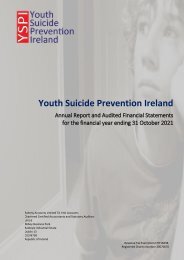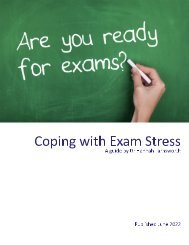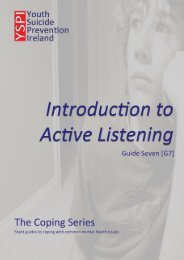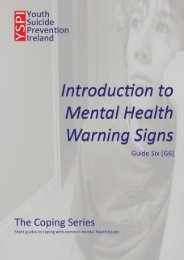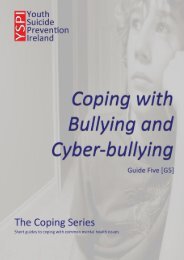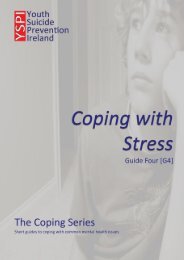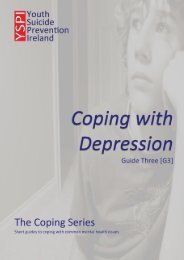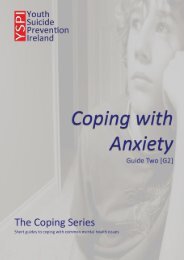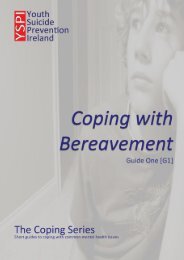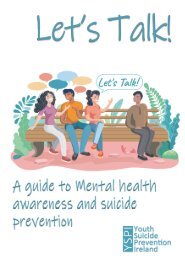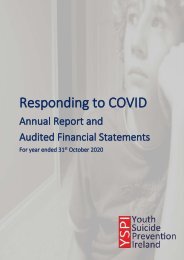Let's Talk About Mental Health
Written by Dr Hannah Farnsworth this magazine provides guidance on common mental health issues with coping strategies and support information. Topics covered include Anxiety, Stress, Depression, Bullying & Cyber-bullying, Warnings Signs of Mental Health Crises and an introduction to Active Listening. This guide is written by a registered medical practitioner and is suitable for ages 16+. Parents are advised to read the guide before letting under 16s have access.
Written by Dr Hannah Farnsworth this magazine provides guidance on common mental health issues with coping strategies and support information. Topics covered include Anxiety, Stress, Depression, Bullying & Cyber-bullying, Warnings Signs of Mental Health Crises and an introduction to Active Listening.
This guide is written by a registered medical practitioner and is suitable for ages 16+. Parents are advised to read the guide before letting under 16s have access.
You also want an ePaper? Increase the reach of your titles
YUMPU automatically turns print PDFs into web optimized ePapers that Google loves.
Who Can Be an Active Listener?<br />
Although many professionals, including counsellors, doctors and therapists, use active listening, this skill<br />
can be developed by anyone! Active listening is something that you can practice each time someone<br />
talks to you, so that gradually over time your skills become strengthened.<br />
What Are the Benefits of Active Listening?<br />
Although you might be keen to learn about active listening to support one particular person, once you<br />
have acquired this skill you will find that it can be used positively in many situations.<br />
Friendships and Relationships Employment Socialising<br />
In friendships, personal and family relationships, being<br />
able to actively listen shows those you are close<br />
to that you care about their thoughts, feelings and<br />
opinions. Being there for someone when they need a<br />
friend can strengthen your relationship.<br />
If you have a part-time job, knowing how to actively<br />
listen will help you to form professional relationships<br />
with your colleagues. It can be daunting to take<br />
your first steps in employment, but showing that you<br />
will listen to your colleagues’ thoughts for effective<br />
collaboration can prove you to be a real asset to the<br />
workplace.<br />
When you meet new people or spend time with<br />
friends, being an active listener will help you to<br />
improve you conversation skills. You may feel more<br />
confident in getting to know new people, asking<br />
questions, or paying attention to the clues body<br />
language might give you.<br />
The Characteristics of Good Active Listening<br />
A good active listener will:<br />
• Listen more than they talk<br />
• Be compassionate<br />
• Try to be available to talk whenever needed,<br />
or suggest an alternative time if necessary<br />
• Not shy away from painful feelings<br />
• Assure someone that they can speak<br />
in confidence<br />
• Accept what someone else says<br />
• Empathise.<br />
A good active listener will not:<br />
• Offer opinions or make judgments<br />
• Belittle someone else’s concerns<br />
• Patronise<br />
• Probe into what someone else is thinking<br />
• Give advice<br />
• Offer platitudes such as “it will all be ok”<br />
• Say “I know how you feel”<br />
• Fail to pay attention<br />
• Express shock or surprise<br />
• <strong>Talk</strong> about their own problems.<br />
18


